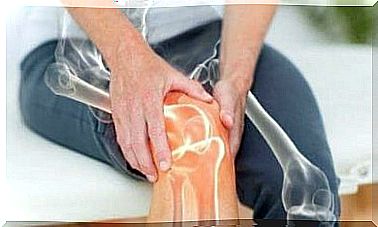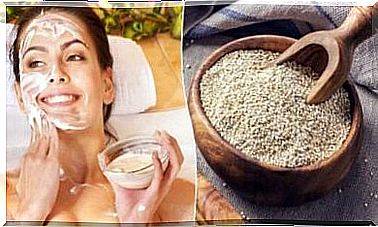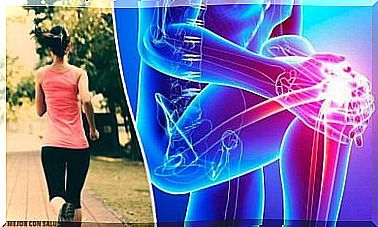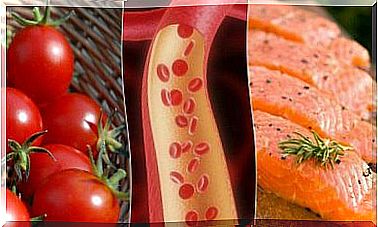6 Nutrients You Need If You Are Over 40

Have you ever wondered what nutrients you need if you are over 40?
After reaching 40 , it becomes more important to keep an eye on the amount of vitamins, minerals and nutrients we get in us. If you do not pay enough attention to it, you may experience negative changes such as loss of muscle mass, a slow metabolism and increased risk of suffering from heart disease.
Find out which vitamins and other nutrients you need most after you reach 40, and start including them in your diet every day.
Nutrients you need when you are over 40
1. B-12

Vitamin B-12 can be found naturally in animal products. This is important for your brain, blood and nervous system.
If you do not have enough of this vitamin, it usually causes:
- General weakness
- Loss of appetite
- Weight loss
- Megaloblastic anemia.
Normally you get the required amount of B-12 from a varied and balanced diet.
However, after reaching 40, the reduction of hydrochloric acid in the stomach can cause problems in absorbing it. Therefore, many older adults should consume it through fortified foods or supplements.
2. Calcium

Calcium is an essential mineral that is present in foods such as milk, cheese and other dairy products.
Due to all of the above, calcium deficiency can cause diseases such as osteoporosis and rickets.
Although your bones absorb most of the calcium you need before you reach 30, you will slowly begin to lose calcium after you turn 40.
Because of this, in order to prevent osteoporosis and other bone problems, it is important that you keep an eye on your calcium intake.
Vitamin D
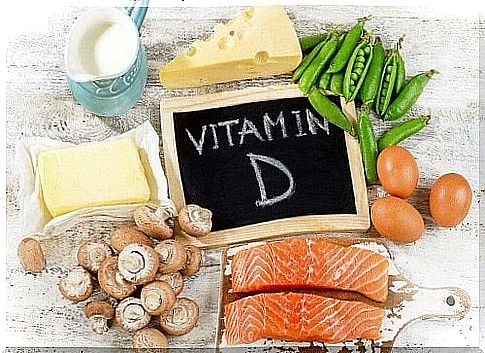
Vitamin D is easily obtained when you are exposed to sunlight and when you eat eggs and milk. This vitamin is important for calcium absorption in your body, because it also plays an important role in the development of the skeleton.
Poor absorption of vitamin D can cause diabetes, multiple sclerosis, cardiovascular disease and chronic diseases.
As your skin’s ability to absorb vitamin D deteriorates with age, you have a higher risk of developing a deficiency after the age of 40.
- Our recommendation is that you take into account how much time you spend in the sun, in a way that is not too much, but also not too little.
- Do not forget to spend at least a few minutes a day in the sun.
- If you are allergic to the sun, or if spending time in the sun is impossible for you, include a vitamin D supplement in your daily routine.
4. Potassium
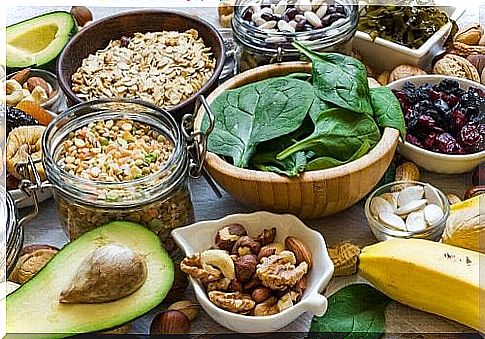
Potassium is an essential mineral for some basic muscle functions and for the nervous system. If you do not get enough potassium after your 40s, you may notice:
- Muscle pain
- Muscle weakness
- Dehydration
- Cramps
- Diarrhea
- Constipation
- Neuromuscular problems
To make sure you take the required amount of potassium, it is important that you follow a varied diet that includes nuts, coffee, dark chocolate and green leafy vegetables.
However, be aware that an excess of potassium in your body can create complications in the heart and gastrointestinal system. Therefore, if you are thinking of taking a potassium supplement, consult your doctor first.
5. Magnesium
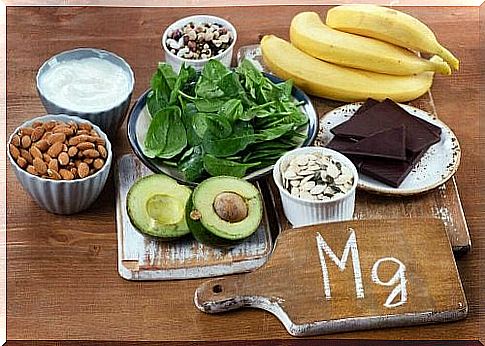
Magnesium is an essential mineral and acts as an important blood pressure regulator. It is also very important in energy production and in calcium absorption, just as in other important metabolic reactions.
Because magnesium is part of chlorophyll, you can find it in green leafy vegetables, unrefined grains, legumes like soy or beans, and in walnuts.
- After the age of 40, it is necessary that you closely monitor your consumption of this mineral.
- You should include foods that contain magnesium in every meal. If your diet lacks any of it, you can include a magnesium supplement in your routine.
6. Omega 3
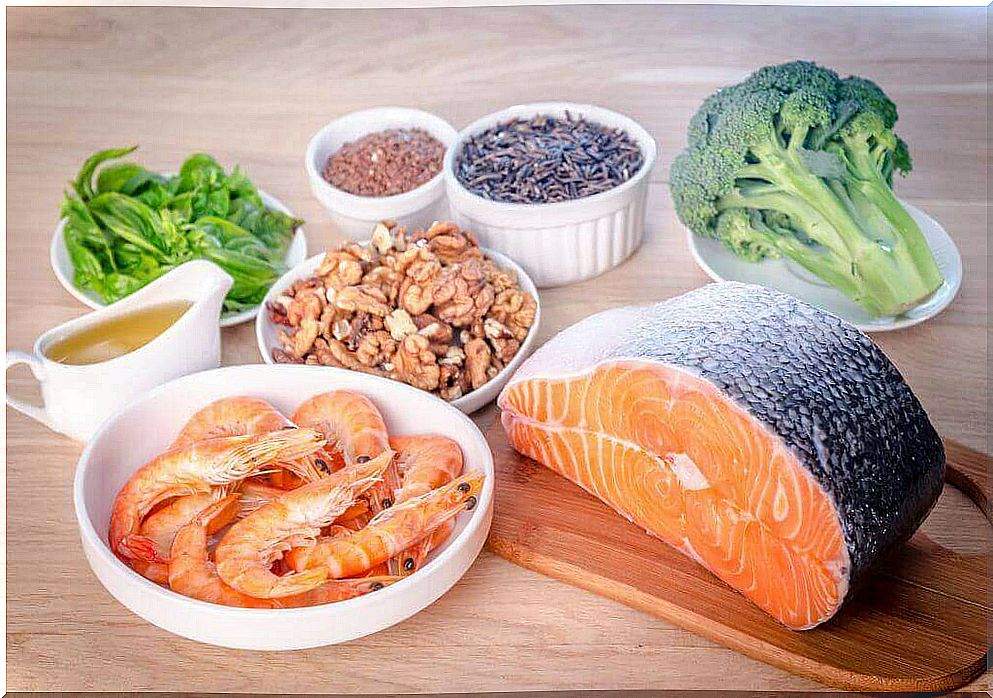
The last item on our list of nutrients you need is omega-3 fatty acids. Although they are not vitamins or minerals, it is important to add them to the list because they are essential for your health after the age of 40.
Omega-3 fatty acids can be obtained through the following forms:
- Animals: From fish oil and krill oil.
- Vegetables: From plants such as flaxseed, chia seeds, hemp seeds and soybean oil.
Getting these nutrients when you reach your 40s will help you control your blood pressure and bad cholesterol (LDL), two problems that are very common at this stage of life.
They also play an important role in preserving memory and brain function in general.
Remember that it is always better to consume vitamins and minerals through healthy food and a balanced diet instead of through supplements and pills.
Living a healthy lifestyle where you get the nutrients you need can help prepare you for the changes that are approaching.



